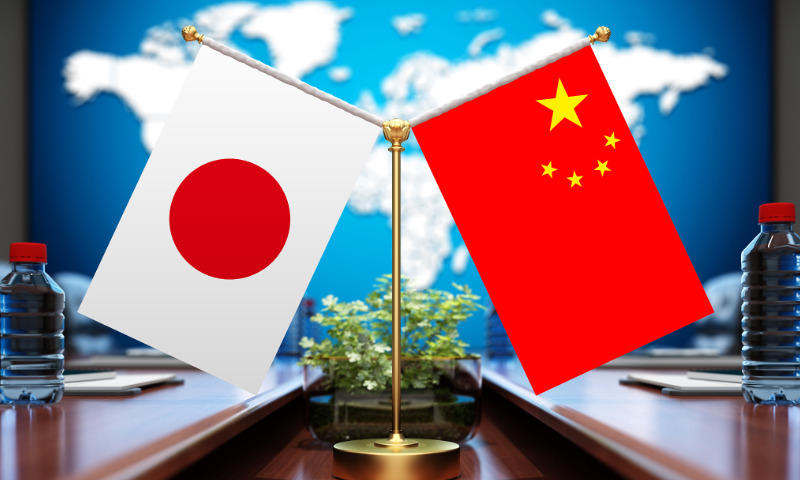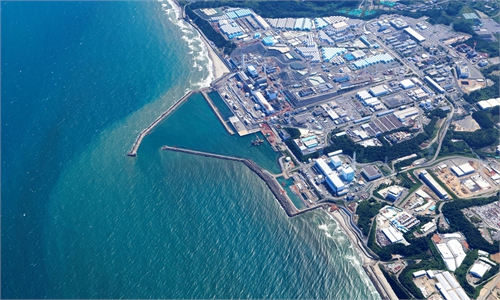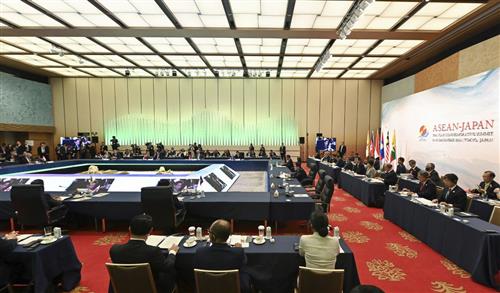
China Japan Photo: VCG
As the new Japanese Ambassador to China Kenji Kanasugi talked about the Fukushima nuclear-contaminated wastewater, the Diaoyu Islands and the detained Japanese nationals upon his arrival at the Japanese Embassy in Beijing on Tuesday, experts said on Wednesday Kanasugi's remarks hint that Japan is unlikely to make compromises on those issues, but it will keep some dialogue channels open in order to prevent risks that Tokyo could lose control of vis-à-vis its relations with China, and that Japan will explore the potential for cooperation in mutually beneficial areas.
"There are various possibilities for cooperation, as well as numerous challenges and concerns between Japan and China. In such circumstances, I believe it is my responsibility to engage in dialogue on unsettled issues and cooperation on common subjects to implement the Japanese government's relevant policy," Kanasugi said, according to the Japanese ambassador's inaugural address published on the website of the Embassy of Japan in China on Tuesday.
At a press conference at the Japanese Embassy on Tuesday, the 64-year-old elite diplomat, who arrived in Beijing earlier in the day, said that he will "tenaciously" negotiate with China to solve a bilateral row over the dumping of Fukushima nuclear-contaminated wastewater into the ocean, and Japan hopes to hold expert consultations on the issue at an early date, Japanese Kyodo News reported.
Over the Diaoyu Islands, Kanasugi claimed he would continue to explain Tokyo's position, according to the Japan Times. He also voiced his commitment to call on Beijing to quickly release detained Japanese nationals.
Kanasugi's Tuesday remarks show that whether the new ambassador is a member of the "China school" or not, there is actually no fundamental difference between them in terms of maintaining Japan's basic diplomatic policies, principles, and interests, Da Zhigang, director of the Institute of Northeast Asian Studies at Heilongjiang Provincial Academy of Social Sciences, told the Global Times on Wednesday.
Da said that what Kanasugi said at the press conference delivered a signal that Japan will tenaciously negotiate with China over strategic issues, and that it will coordinate with the US-led Western bloc to contain China in general, while stabilizing bilateral relations to prevent them from going out of control.
Liu Jiangyong, a professor at Institute of Modern International Relations at Tsinghua University, also told the Global Times on Wednesday that Kanasugi's pushy and sharp words just after he arrived in Beijing reflect that he does not have much experience dealing with China, but that he needs to learn to correctly fulfill his duty to reach the "mutually beneficial" relations agreed upon by the two countries' heads of state in November in San Francisco, otherwise the already-in-winter bilateral ties might get worse during his tenure.
Before being named as the new ambassador to China in late October, Kanasugi was Japan's envoy to Indonesia. He also previously served as senior deputy foreign minister for economic affairs and head of the Asian and Oceanian Affairs Bureau.
Kanasugi is the first Japanese envoy to Beijing since 2016 who is not a member of the Japanese Foreign Ministry's "China school," a faction of Japanese diplomats trained in the Chinese language, Japanese media reported.



